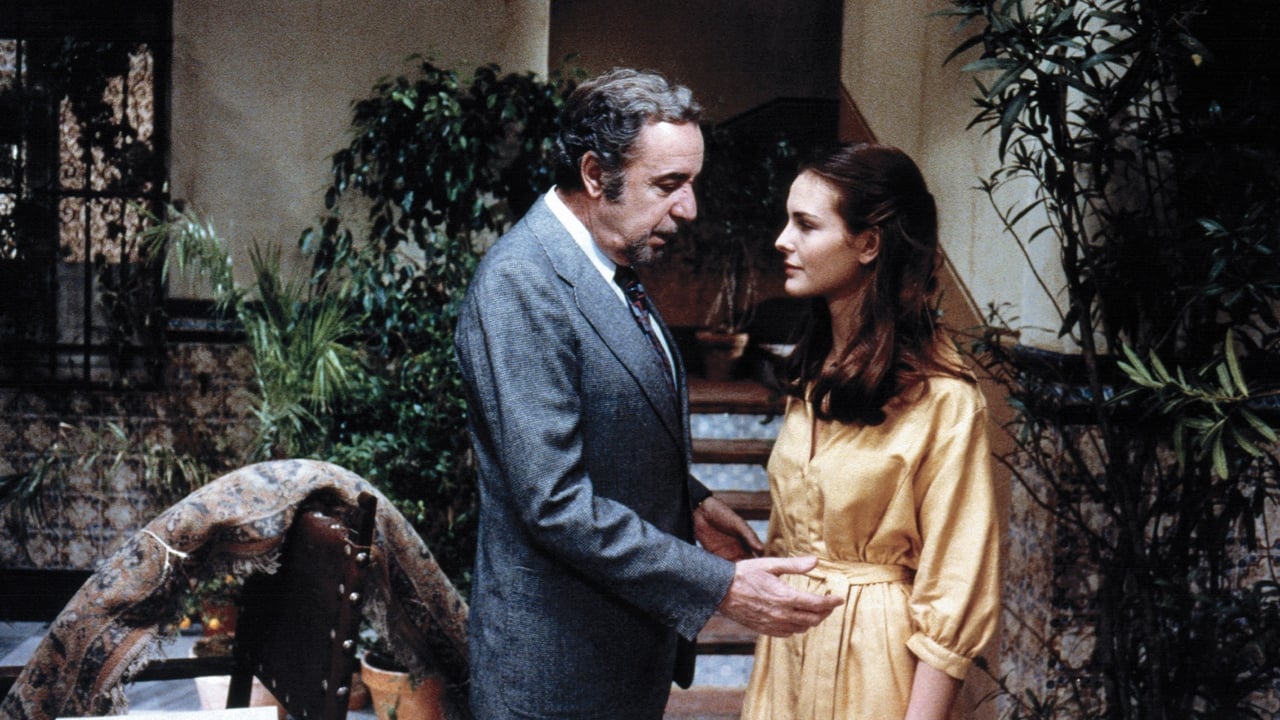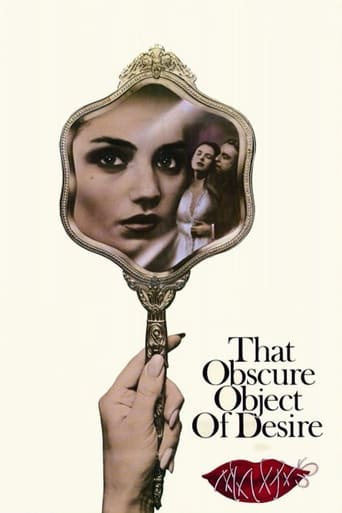

Each character in this movie — down to the smallest one — is an individual rather than a type, prone to spontaneous changes of mood and sometimes amusing outbursts of pettiness or ill humor.
... View MoreGreat example of an old-fashioned, pure-at-heart escapist event movie that doesn't pretend to be anything that it's not and has boat loads of fun being its own ludicrous self.
... View MoreThere's no way I can possibly love it entirely but I just think its ridiculously bad, but enjoyable at the same time.
... View MoreStrong acting helps the film overcome an uncertain premise and create characters that hold our attention absolutely.
... View MoreA fine film and brilliant swan song from the master who was almost 80 when he made this. Fresh and knowing yet unsurprisingly also amusing yet subversive as ever. Things begin innocently enough in a railway carriage with Fernado Rey regaling his fellow passengers with a jolly tale. Oh, except we have already had a terrorist explosion, the disappearance of his maid and there was that bucket of water. Co-writer, Jean-Claude Carriere tells in an most illuminating interview on the Studio Canal Blu-ray, that Rey is dubbed by Michel Piccoli and the two girls that play the single maid, both dubbed by a third girl. Otherwise everything is quite straightforward except that true love never runs smooth and the rich older man, played by Rey has great difficulty with the schizophrenic maid. Except she is not really schizophrenic, just sweet, caring and virginal in one persona and more astute, devilish and controlling in the other. Oh, and much though he might profess it I don't think it is 'love' on the old man's mind. Or on the girls' come to that. It is a simple tale told with more than a pinch of reality and a few seeming extraneous items like the recurring sack and a mouse and a fly. Great fun and far more serious than the gentle old man in the railway carriage would have us believe.
... View MoreWatching this again, about 5 years after having first seen it, was, sad to say, rather boring, even tedious. Regretfully, after sticking it for three-quarters of the way through, I sped forward to the ending. Nothing was gained, it seemed to me, by having the girl played by two very different actresses, one Spanish, the other French. It highlighted the impersonal unreality of the role, and suggested that the atmosphere of impotence and mockery was all in Rey's mind. The object of his desire did not materially exist, and the flashback in the train was like a bad dream. The pace was strangely slow, although the incidents were varied. Rey seemed to be succumbing to a form of senile decay, unprotected by his wealth. In Bunuel's films the characters walk about a great deal, to and fro. They keep coming and going: the jump-cut is not for him. There's a great deal of striding or strolling along streets, walking up to doors, knocking on them, ringing bells, getting in and out of taxis, or other cars and limousines.The feeling that the story was seriously dated was a perhaps a reflection of its original publication in 1898. The emotional torture experienced by Rey somehow didn't seem relevant to the post-Elvis, post-Beatle world. The explosions that happened from time to time failed to update it. Bunuel made this, his last film, when he was almost 80. It made me feel as if I were 80, and I'm only 79.
... View MoreI always knew I was not good with faces, but I didn't realize just how bad I was until I watched this movie. It was only after I finished watching the movie and read a review on it that I found out that Conchita was played by two different actresses in regularly alternating scenes. Once I read that, I could immediately remember the difference, though I had not noticed it at the time. In fact, there was even a scene in which a third woman, who happened to be a brunette, made an appearance, and I thought she was Conchita too. Apparently the purpose was to have one actress play Conchita when she wants to have sex and the other actress when she does not.Anyway, we see some terrorism. Then, Mathieu, a middle-aged man, tries to seduce Conchita, his maid, on her first day on the job, which is creepy (today we would call it sexual harassment). She quits as a result, but he keeps pursuing her (today we would call it stalking).And then we see some more terrorism. Our disgust for him as a lecher soon turns to pity, because she keeps egging him on, promising, enticing, getting naked, rubbing her body on him, but he must not have sex with her, because she is virgin and she is saving herself for him and that ought to be enough for him and besides, what kind of girl does he think she is anyway?More terrorism. The movie proves there is no fool like an old fool, because he buys her a house to win her love, but she locks him out and has sex with her lover while he watches from outside.You guessed it, some more terrorism. He finally gets fed up and says he knows God will never forgive her. But then he forgives her, and they get back together. But wait! They start arguing again. Suddenly a bomb goes off in the marketplace blowing them to bits.Thank goodness for terrorism.
... View MoreFew other directors would dare to equate the male libido with international terrorism, but the final feature by master surrealist Luis Buñuel is a dark comic web of sexual obsession (too dark to be truly funny) set against a background of random explosions and political assassinations. The always dapper Fernando Rey stars as a wealthy gentleman who develops an all-consuming infatuation for his young Spanish maid, who by turns tempts him, teases him, refuses him, and finally humiliates him. All Rey wants is to carry his passion to its logical conclusion, but her (deliberately?) unpredictable shifts in mood, from coy temptation to spiteful rejection, leave him in a state of dangerous frustration. Buñuel applies his usual sly wit to the otherwise cynical and pessimistic scenario (one man affectionately refers to women as "sacks of excrement"), going so far as to cast two completely different actresses in the title role and interchanging them at random. The film is at once perverse and disturbing, providing a suitably mordant swan song to a long and distinguished career in movie iconoclasm.
... View More